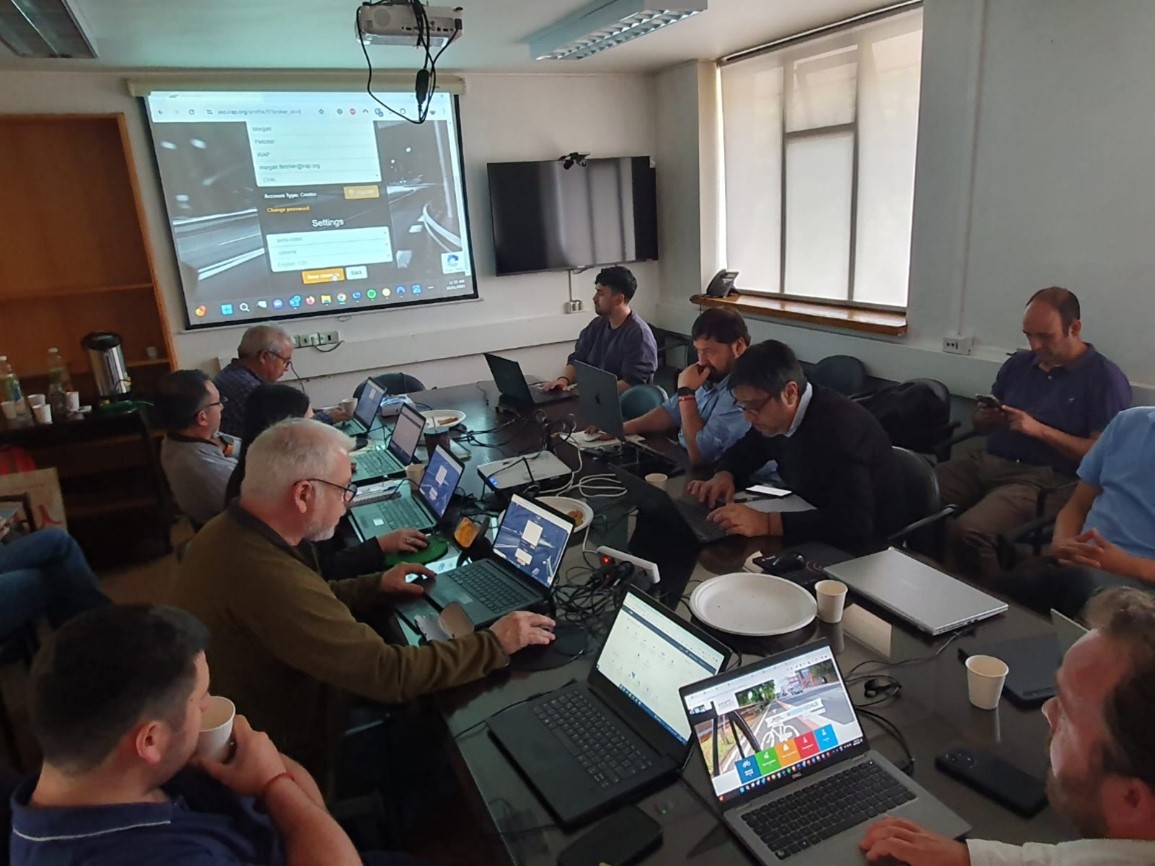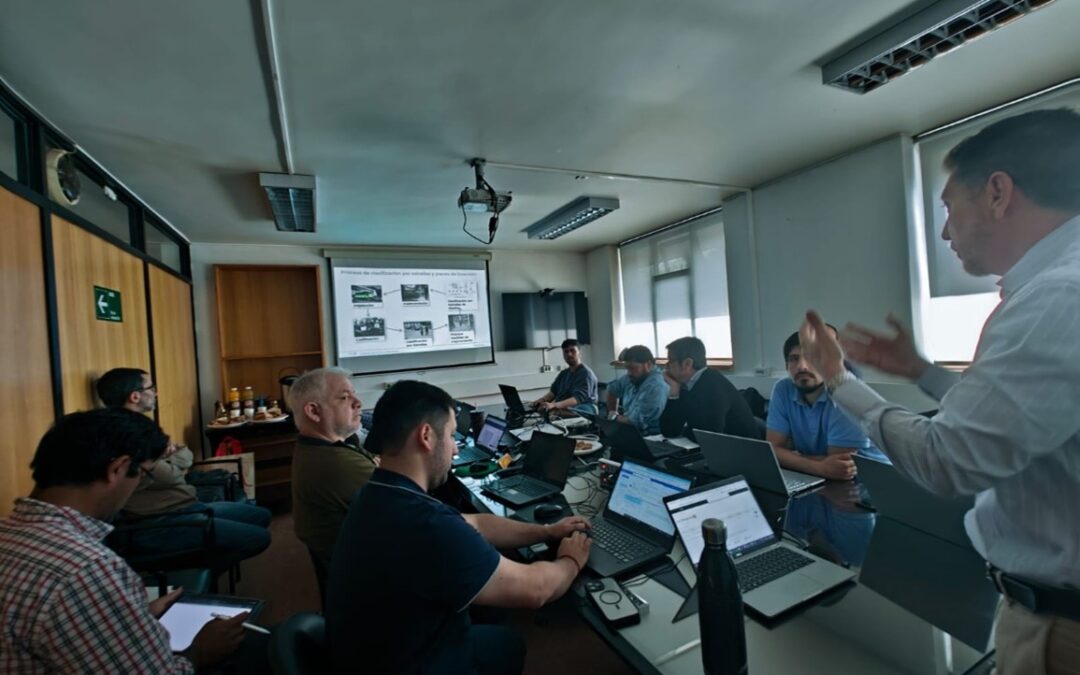The training and assessment is part of a larger iRAP project assessing the safety of 53 roads totalling 1,907km across the three Chilean regions of Magallanes, Aysén and Los Lagos. Read more on the project here.
More than 530km have been assessed across 22 roads in Aysen by a consortium, led by DDQ, and supported by iRAP Accredited Practitioners APSA (for the survey and coding) and iRAP (for quality assurance, star rating modelling and investment planning support).
“What made this project special is that following the iRAP assessment, DDQ took the ViDA-generated Safer Roads Investment Plan (SRIP) and reviewed every single countermeasure proposed by iRAP on 1 and 2-star road sections to determine their feasibility for implementation,” Morgan Fletcher, iRAP’s LAC Operations Team Lead said.
Key proposed countermeasures included delineation, the installation of crash barriers and the installation of supporting elements such as directional delineators on curves.
“Significant Star Rating improvements can be achieved through a combination of low-cost actions, such as improved markings and speed reductions on the most dangerous sections of roads. Infrastructure upgrades and speed management are the most effective ways to achieve 3-star or better roads for all road users,” Mr Fletcher added.
The training was run by Mr Fletcher, iRAP Strategic Projects Director Julio Urzua and staff from DDQ.
The regional road authority attendees learned how to use ViDA, run simulations using the iRAP Road Safety Demonstrator and how to update the results in ViDA once upgrades have occurred.
Regional training for Magallanes occurred in December, and training focussed on the Los Lagos’ results is scheduled in February.

Images credit: iRAP

















